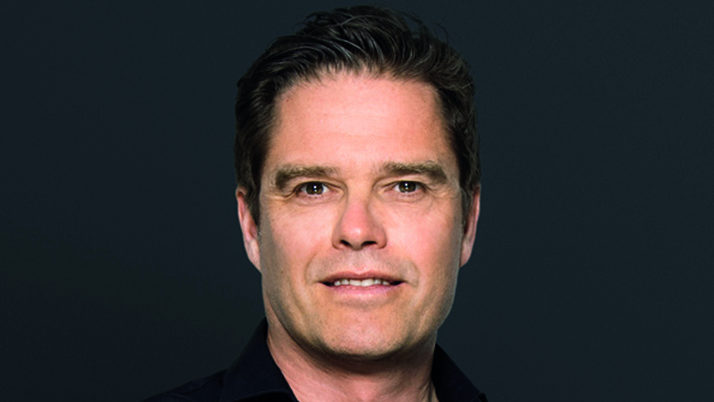
The Norwegian robotics firm’s CFO tells Danielle Myles how its technology evolved from an internal solution into the country’s biggest listing in two decades.
In the mid-1990s Norwegian electronics distributor the Hatteland Group faced a storage challenge. Its newly-built warehouse had quickly reached capacity and a new system was needed to maximise the space. The answer, dreamt up by its technical director, was a so-called cubic storage solution which tightly packs inventory and uses robotics to automate retrieval.
“That prototype had no aisles and no air between the bins. It is a completely compact cubic warehouse system,” says Bent Skisaker, chief financial officer of AutoStore, the subsidiary that was spun-off in 2005 to commercialise the solution. Today, AutoStore’s client list spans more than 35 countries and includes the likes of Puma, Best Buy, UPS and DHL. Investors appear to be equally impressed. In autumn 2021, the firm became Oslo Bors’s biggest listing in two decades.
Unlikely tailwinds
The proliferation of online shopping and customers’ increasingly fast delivery expectations have placed new demands on retailers and logistics firms. It has been a boon for the warehouse automation industry, including AutoStore, which achieved a compound annual growth rate of almost 50% during the decade ending 2020.
The pandemic turned things up a notch, having spurred both e-commerce and automation within businesses. “They are perhaps the two most important drivers of our business, so it actually accelerated our growth,” says Mr Skisaker. In 2021, growth was forecast to reach 65%, while this year sales are forecast to expand even more. The company is pursuing some 2000 leads worth $3.4bn; more than 10% of its pipeline typically converts into revenues within the following 12 months, he notes.
Having firmly established itself as an industry leader, AutoStore’s biggest competitor in recent years has been customers deciding against an automated warehouse solution. “When we lose a bid, four out of five it is to manual handling. But we believe that is not a loss, only a postponement,” says Mr Skisaker. “At some point, they’ll come back.”
Always on the cards
Its growth profile has made AutoStore a popular target for private equity firms and, in turn, a likely candidate for an initial public offering (IPO) exit. Both EQT and Boston-based Thomas H Lee Partners have invested over the years and, in April 2021, Softbank acquired a 40% stake for $2.8bn. Work on a public listing started soon after, with Stockholm-headquartered Carnegie, JPMorgan and Morgan Stanley appointed global coordinators in late May.
We realised this would be a large and predominantly international bid, so it was natural to go with two international banks in combination with a Nordic bank
“We realised this would be a large and predominantly international bid, so it was natural to go with two international banks in combination with a Nordic bank,” says Mr Skisaker. They also acted as joint bookrunners alongside ABG Sundal Collier, Citigroup and Jefferies. Mizuho and SpareBank 1 Markets were co-lead managers, while Moelis & Company was financial advisor.
Early look presentations and pre-marketing took place over the following months, before the roadshow kicked off in October. “The large international investors spent a lot of time on this,” recalls Mr Skisaker. “We had four or five meetings with some of them. They really scrutinised things.” Their biggest concerns surrounded the sustainability of the firm’s strong growth and margin forecasts.
On October 20, AutoStore listed on the Oslo Bors at NKr31 ($3.50) per share, top of the indicative range. The primary share issuance raised NKr2.7bn, while secondary stock sales — including via the greenshoe option — amounted to NKr18bn. The free float now sits at around 25% and the IPO valued the company at some $12bn, making it the exchange’s biggest listing since state energy firm Equinor (then Statoil) went public 20 years earlier.
The deal was buoyed by cornerstone investors Fidelity, Swedish pension fund Alecta, Mawer Investment Management and WCM Investment Management, which had each committed $200m. The funds were used to deleverage AutoStore’s debt levels which, after several private equity rounds, had reached around five times their earnings before interest, taxes, depreciation and amortisation. Now, its leverage levels are in line with those of other listed, high-growth tech companies.
No place like home
Throughout the rest of the year, AutoStore’s shares continued to perform well in the aftermarket — something Mr Skisaker attributes to a well-judged transaction. “I think the pricing of the company was very wise, and has provided the IPO investors with a nice journey afterwards,” he says.
Despite the number of tech-heavy exchanges around the world, no other venue was evaluated in detail. Oslo Bors was considered the firm’s natural home. “It was also said, and later proven, that the pricing is no different in Oslo to any other stock exchange,” says Mr Skisaker. “And we attracted mostly international investors.” Indeed, the deal was dominated by UK and US names, with strong participation from some Sweden and very few names from Norway. By keeping loyal to its home market, AutoStore has proven Oslo’s ability to support large, truly international listings.


